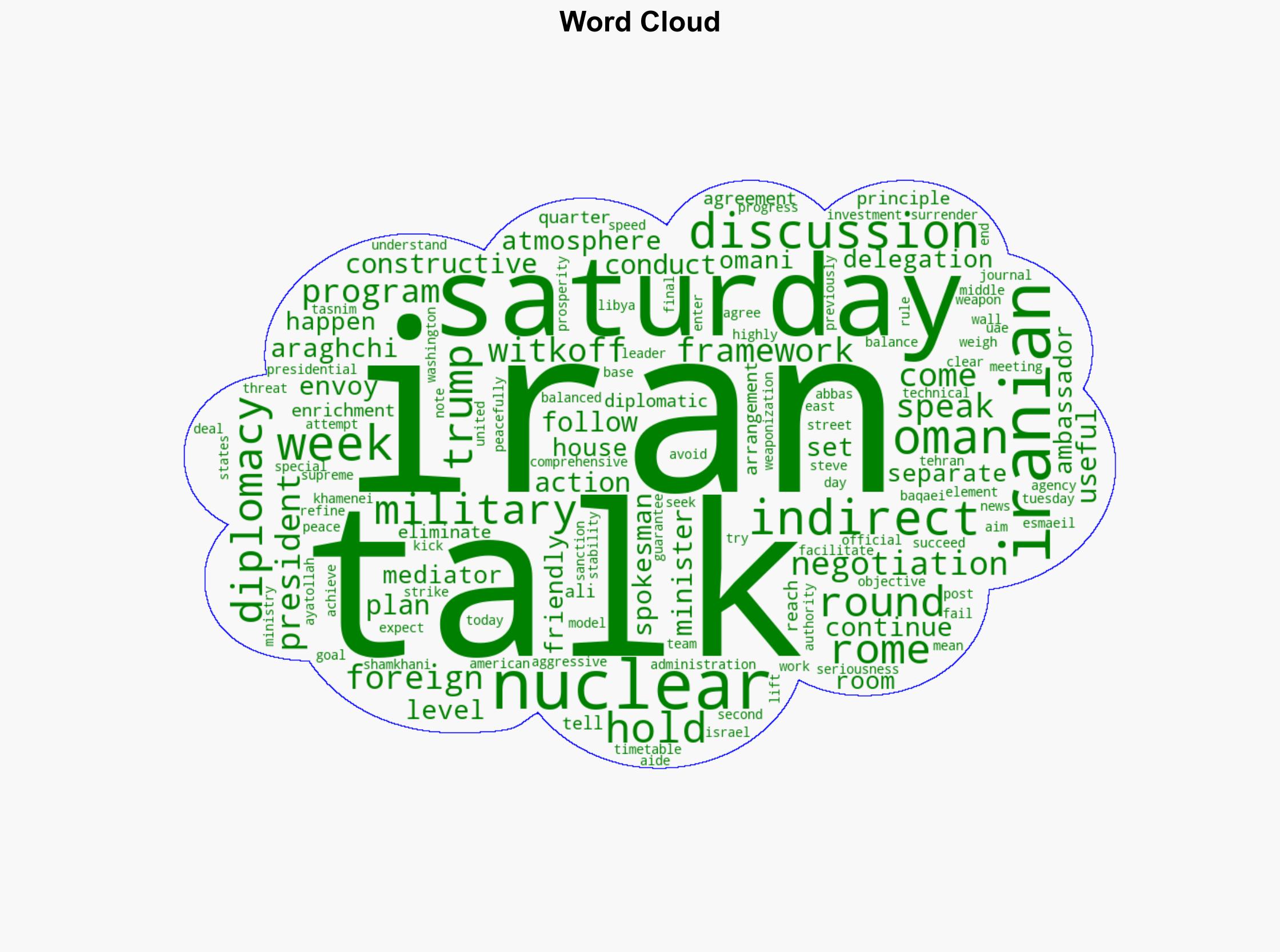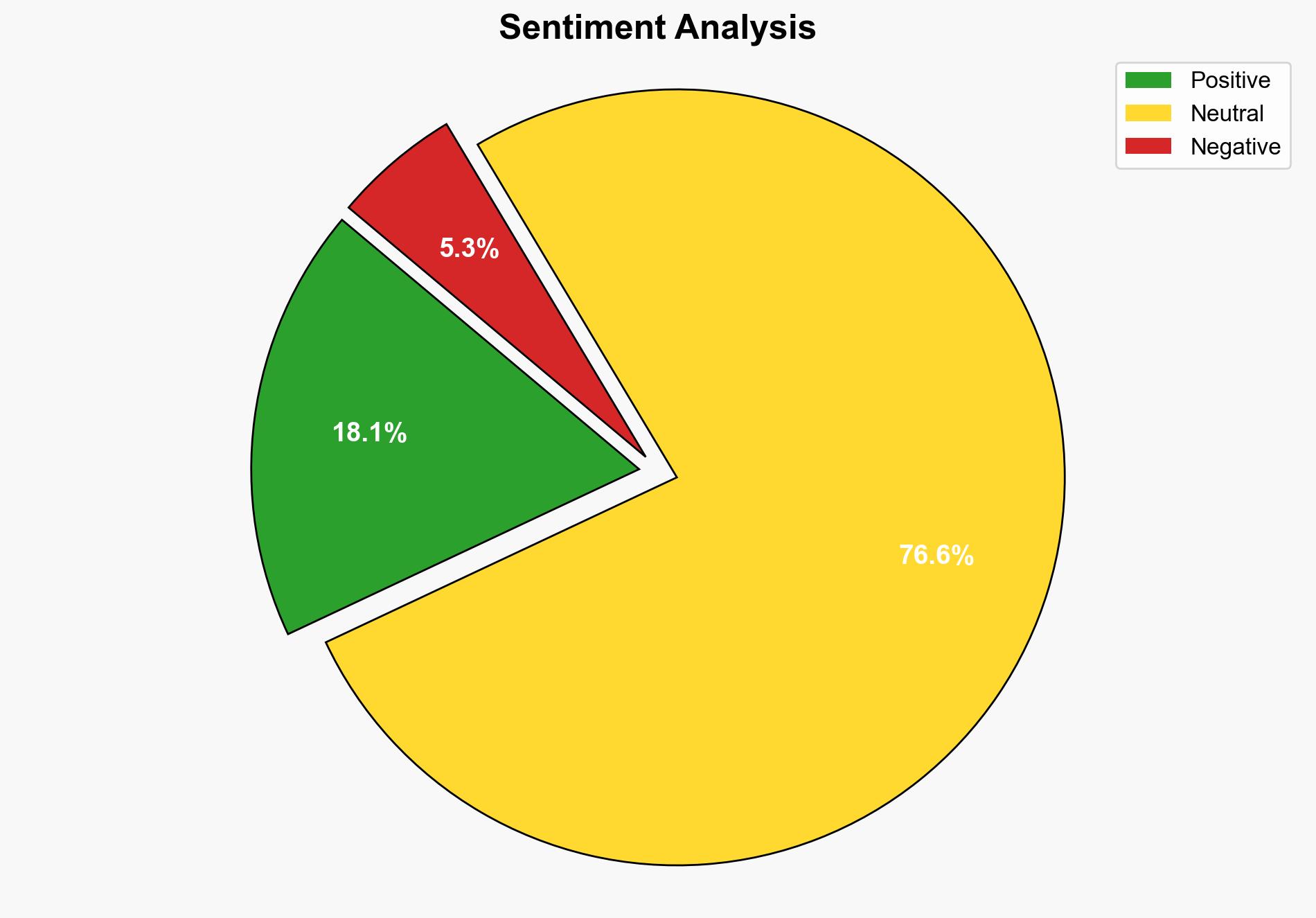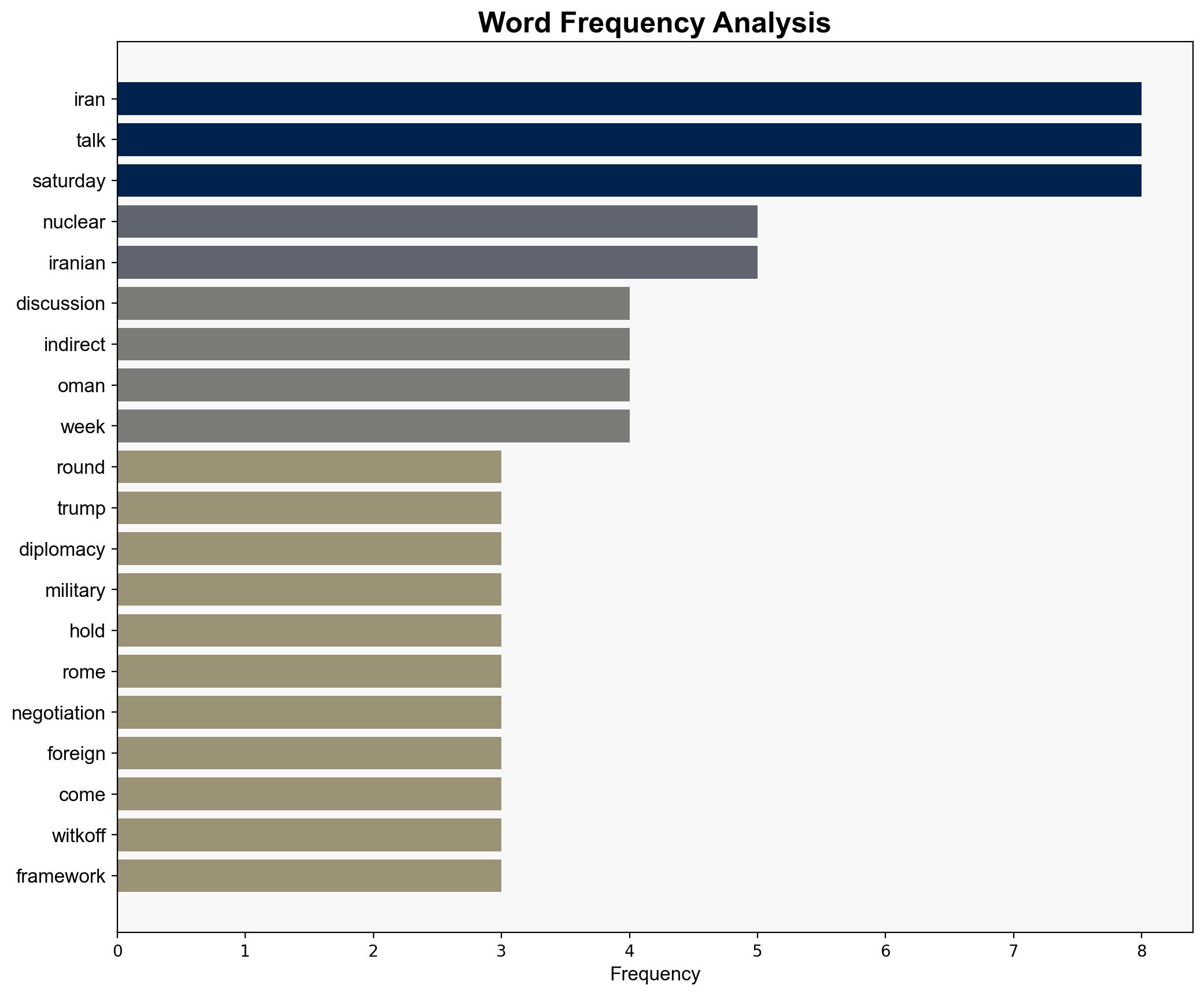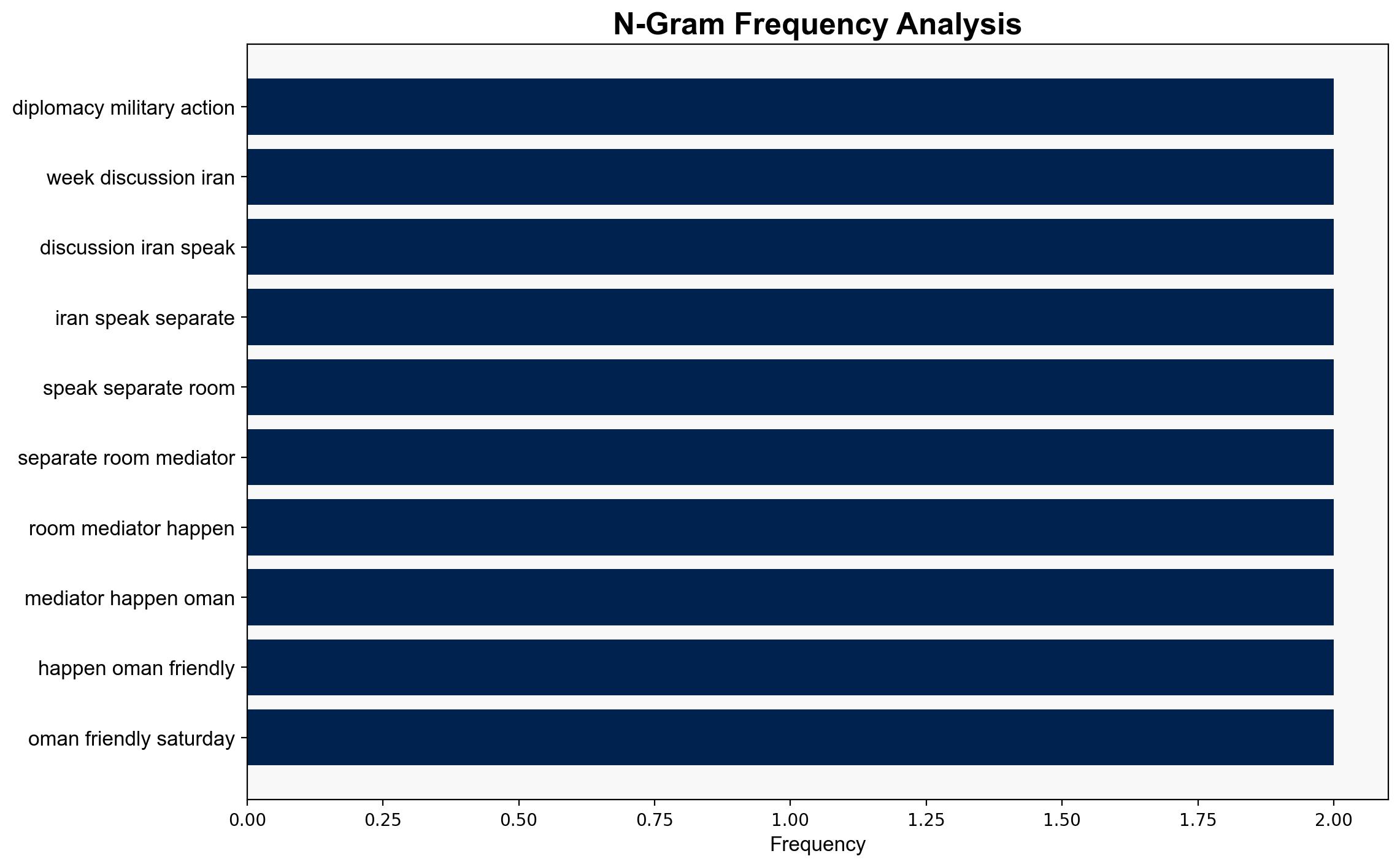US and Iran hold second round of nuclear talks in Rome as Trump tries diplomacy over military action – New York Post
Published on: 2025-04-19
Intelligence Report: US and Iran hold second round of nuclear talks in Rome as Trump tries diplomacy over military action – New York Post
1. BLUF (Bottom Line Up Front)
The second round of indirect nuclear talks between the US and Iran in Rome signifies a strategic shift towards diplomacy over military action. The discussions, facilitated by Omani mediation, aim to establish a framework for a comprehensive agreement on Iran’s nuclear program. The talks are progressing in a constructive atmosphere, with both sides expressing a commitment to continue negotiations. The outcome of these talks could significantly impact regional stability and US-Iran relations.
2. Detailed Analysis
The following structured analytic techniques have been applied:
SWOT Analysis
Strengths: Diplomatic engagement opens channels for peaceful resolution; Omani mediation provides a neutral ground.
Weaknesses: Indirect talks may slow progress; potential internal political pressures in both countries.
Opportunities: Potential for a comprehensive agreement that enhances regional stability; economic benefits from lifted sanctions.
Threats: Failure of talks could escalate tensions; external actors may attempt to disrupt negotiations.
Cross-Impact Matrix
Successful talks could lead to improved US-Iran relations, influencing regional dynamics positively. Conversely, failure could exacerbate tensions, affecting neighboring countries’ security and economic conditions.
Scenario Generation
Scenario 1: Successful agreement leads to phased lifting of sanctions, boosting Iran’s economy and regional trade.
Scenario 2: Talks stall, leading to increased regional tensions and potential military confrontations.
Scenario 3: Partial agreement reached, maintaining status quo but reducing immediate threats.
3. Implications and Strategic Risks
The continuation of talks suggests a potential shift towards diplomatic solutions, reducing immediate military threats. However, the risk of talks failing remains, which could lead to increased regional instability and economic disruptions. The involvement of external actors, such as Israel, adds complexity to the negotiations.
4. Recommendations and Outlook
- Encourage continued diplomatic engagement and support Omani mediation efforts to maintain momentum.
- Prepare contingency plans for potential escalation if talks fail, including diplomatic and economic measures.
- Monitor regional actors’ responses to negotiations to anticipate shifts in alliances and threats.
- Scenario-based projections suggest a cautious but optimistic outlook if negotiations continue positively.
5. Key Individuals and Entities
Esmaeil Baqaei, Steve Witkoff, Abbas Araghchi, Ali Shamkhani, Ayatollah Ali Khamenei.





